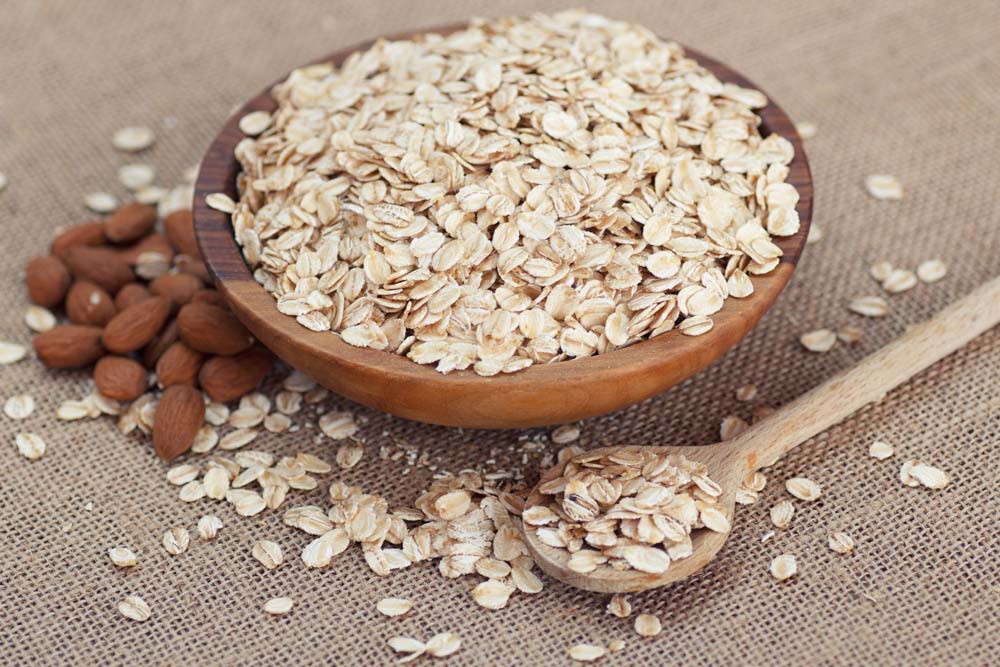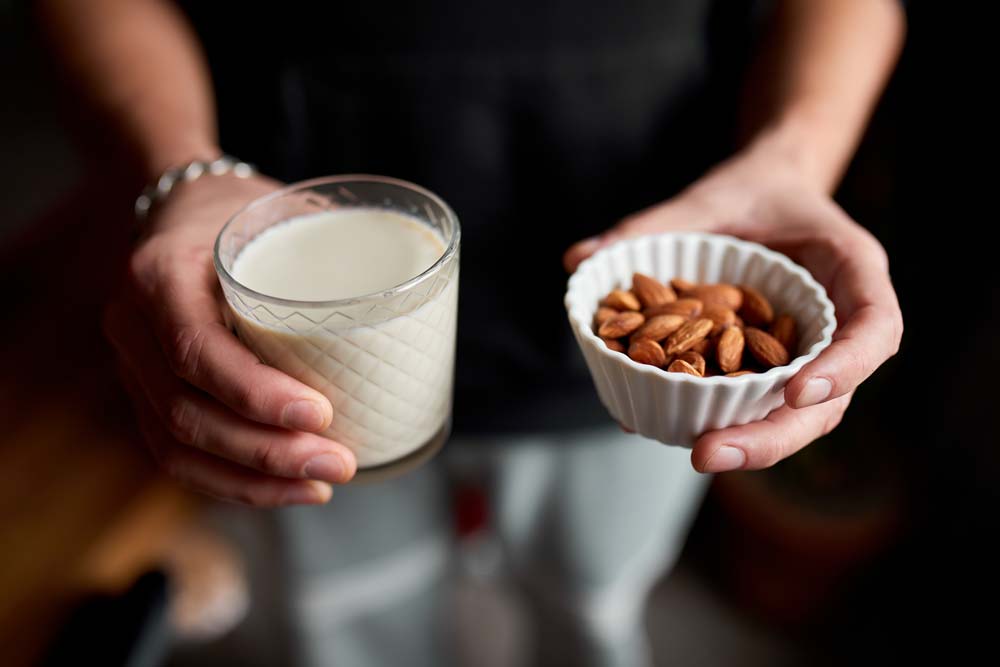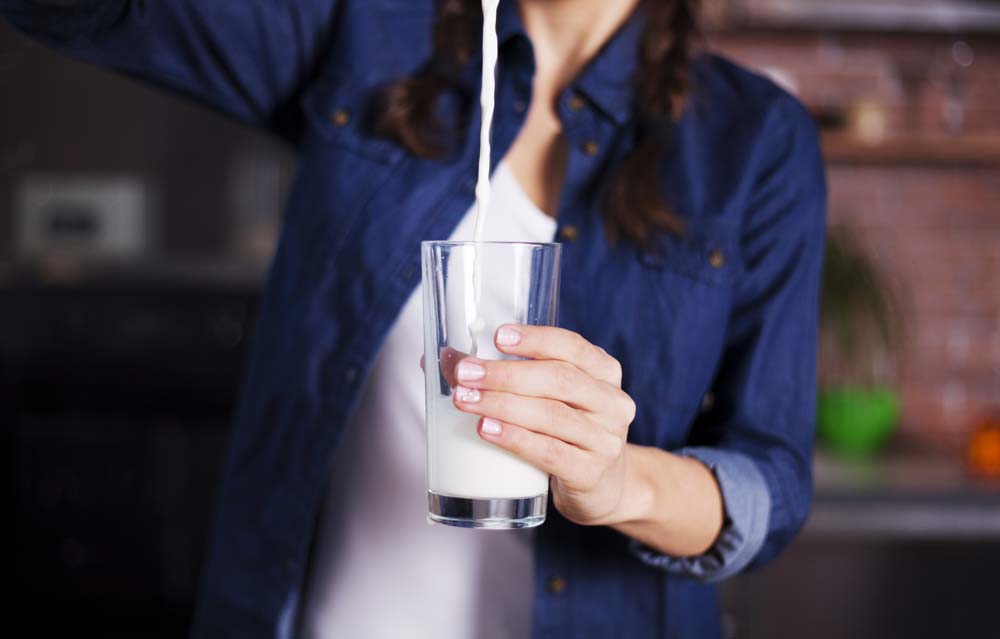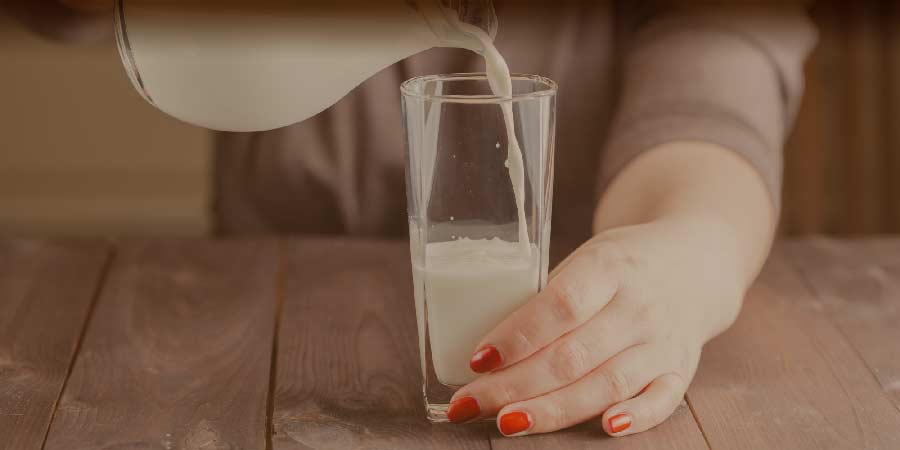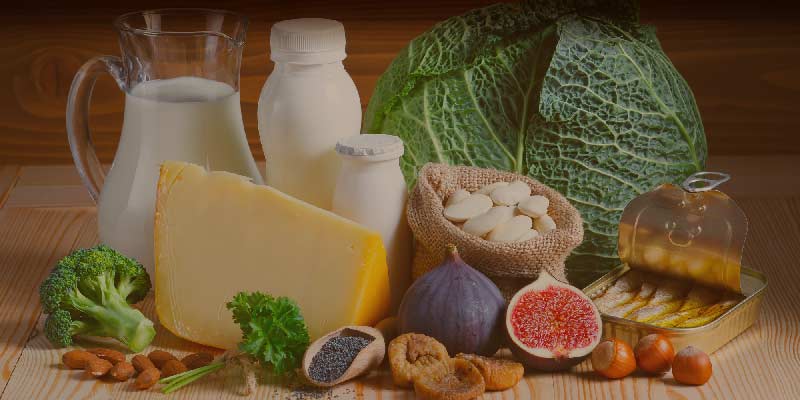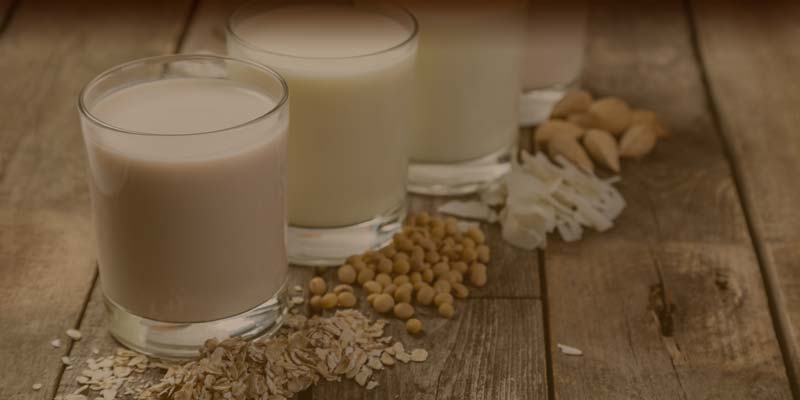The nutritional content of plant-based drinks and foods are different to cow’s milk and dairy products, and plant-based alternatives do not contain the same levels of vitamins and minerals as dairy products – especially if unfortified.
While alternatives may contain some natural micronutrients, you won’t get the same health benefits from, say, an almond or coconut drink that you would from eating almonds or a coconut itself.
Most milk alternatives don’t have as much protein as milk, and vegan alternatives to cheese do not contain similar levels of protein or calcium to dairy cheeses. In fact, a recent study into 245 different non-dairy cheese alternatives found that most contained less protein content than their dairy counterparts.
Soya drinks are the only alternative to cow’s milk that contain similar amounts of protein. A 200ml portion of semi skimmed milk contains 7.2g of protein, which is 14% of an adult’s recommended daily intake, while the same amount of soya drink contains around 5/6g of protein.
Plant-based alternatives are often fortified with micronutrients that occur naturally in cow’s milk for this reason, and often add nutrients such as calcium and vitamins B2 and B12. However, they’re not all fortified to the same level. This means that most alternatives don’t contain the full range of vitamins and minerals that dairy does, so it is important to check the label. Many experts have called for these products to contain the same variety and levels of nutrients as milk, but they don’t yet know if added vitamins offer the same health benefits as those that occur naturally in cow’s milk.
Even if a plant-based drink or food is fortified with added nutrients, it may still not be comparable to dairy. This is because the added nutrients in alternatives, such as calcium, may not be as easily absorbed by our bodies as those which occur naturally in dairy – this is what’s known as ‘bioavailability’. So even if fortified to the same levels, our body’s ability to use the nutrients could still differ between the two.
Another common issue is that these added nutrients can collect at the base of cartons or packaging, so they’re not equally distributed throughout the product without vigorous shaking.



